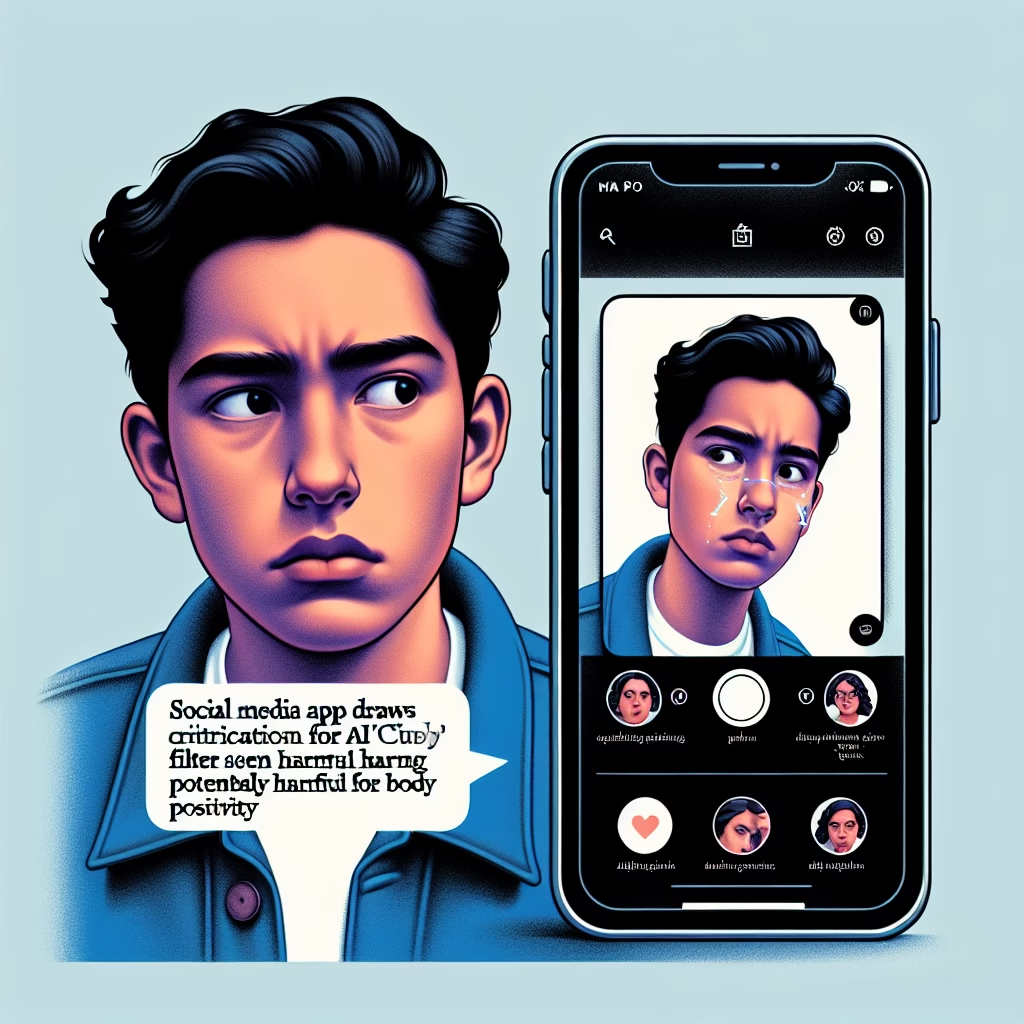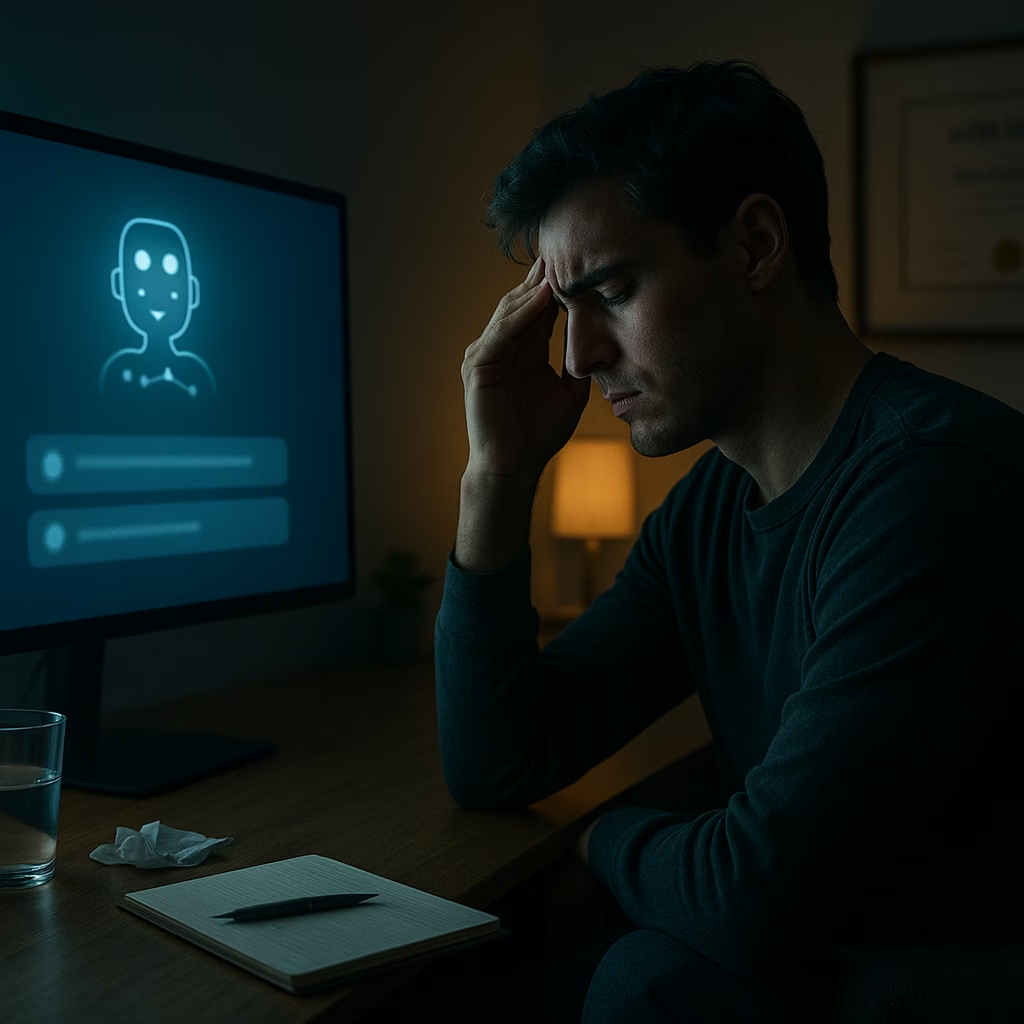TikTok Called Out for AI ‘Chubby’ Filter: Critics Say It Could Lead to Body Negativity
Social media platforms have long faced scrutiny for the way they shape beauty standards and influence self-perception. TikTok, one of the most popular social media apps in the world, is now under fire for an AI-powered filter dubbed the “Chubby” filter. Critics argue that this feature could contribute to body negativity by reinforcing unrealistic beauty ideals and fostering unhealthy comparisons.
What Is the TikTok AI ‘Chubby’ Filter?
The TikTok AI ‘Chubby’ filter is one of many available on the platform that alters facial and body appearance in videos. While some filters add playful or exaggerated features for entertainment, others subtly reshape a user’s face or body to align with certain beauty norms.
This particular filter reportedly makes a user’s face appear rounder or “chubbier,” sparking a wave of controversy. Many argue that filters like this, which digitally adjust body-related features, can have detrimental effects on body image and self-esteem, particularly among young users.
Growing Concerns Over Body Image Issues
Social Media’s Role in Reinforcing Beauty Standards
Social media platforms, including TikTok, Instagram, and Snapchat, have played a significant role in shaping beauty standards. The use of filters and editing tools to modify one’s appearance can create a culture where natural looks are devalued in favor of algorithmically generated perfection.
Some of the key concerns related to these digital distortions include:
- Unrealistic Beauty Expectations: Filters often idealize certain facial features while diminishing others, promoting an unattainable image of beauty.
- Psychological Impact on Young Users: Studies have shown that exposure to altered images on social media can contribute to body dissatisfaction and lower self-esteem, especially in teenagers.
- Encouragement of Harmful Comparisons: When users frequently compare themselves to digitally altered images, they may begin to feel inadequate or less attractive in their natural state.
Increased Scrutiny from Advocacy Groups
The backlash against TikTok’s AI-generated ‘Chubby’ filter has drawn attention from advocacy groups and mental health professionals. Many argue that the proliferation of these filters creates an environment that fuels body dysmorphia and unhealthy self-perceptions.
A recent statement from body positivity advocates highlights the potential risks of beauty modification tools, stating that they reinforce the idea that certain body types are undesirable. By labeling a fuller face as “chubby,” critics believe that TikTok contributes to a culture of body shaming.
TikTok’s Response to the Backlash
In light of the controversy, TikTok has yet to make a formal statement regarding the ‘Chubby’ filter. However, the platform has previously acknowledged concerns over body image issues. In the past, TikTok implemented certain policies to discourage harmful content, such as banning weight-loss ads targeting young users and removing content that promotes disordered eating habits.
Despite these efforts, critics argue that the availability of filters that alter body size continues to send mixed messages. While TikTok promotes body positivity, the existence of such filters suggests an underlying bias toward certain beauty standards.
The Larger Issue of AI-Driven Beauty Filters
The Rise of AI in Social Media Filters
Social media platforms increasingly rely on artificial intelligence to develop sophisticated beauty filters. These AI-driven tools not only enhance facial features but also completely reshape a person’s appearance, sometimes without them even realizing the extent of the transformation.
Some of the more concerning effects of AI beauty filters include:
- Subtle and Convincing Alterations: Many AI-generated filters make minor changes that may appear natural, leading users to internalize altered versions of themselves as “normal.”
- Reduced Self-Confidence: Psychologists warn that repeated exposure to these filters can make users feel less confident in their natural appearance, fostering ongoing dissatisfaction.
- Potential for Artificial Beauty Culture: With AI enhancing beauty standards beyond human reach, there is a growing fear that society may eventually see filtered images as a new baseline for beauty.
Calls for Stricter Regulations
As AI-driven beauty modification becomes more prevalent, many are calling for stricter regulations on how such filters are developed and marketed. Some experts argue that platforms should implement enhanced transparency measures, such as notifying users when a filter is significantly altering physical features.
Additionally, advocacy groups have pushed for social media companies to offer more content that promotes natural beauty and body diversity rather than perpetuating narrow beauty ideals.
What Can Users Do to Promote a Healthy Body Image?
While social media platforms bear responsibility for addressing these issues, users can also take steps to cultivate a more positive relationship with their body image.
Tips for Navigating Social Media in a Body-Positive Way
- Limit Exposure to Filters: Reduce reliance on beauty-enhancing filters and engage with unfiltered content to help normalize natural appearances.
- Follow Body-Positive Creators: Support influencers who promote self-acceptance and body diversity rather than unrealistic beauty standards.
- Practice Content Awareness: Be mindful of the types of content consumed and avoid accounts that frequently use extreme beauty modification tools.
- Encourage Open Conversations: Discuss the impact of social media filters with friends and family to raise awareness and promote healthy perspectives.
Final Thoughts: Should AI Beauty Filters Be Regulated?
The controversy surrounding TikTok’s AI ‘Chubby’ filter is a reminder of the ongoing debate about the ethical implications of beauty modification tools. While AI-driven filters can be fun and creative, they also have a powerful influence on self-perception, particularly among younger users.
As pressure mounts on social media companies to create safer digital environments, it remains to be seen whether platforms like TikTok will take further steps to address concerns about body image and self-esteem.
Ultimately, while technology continues to evolve, fostering a culture of self-acceptance and realistic beauty expectations will require collective effort from both social media users and platforms alike.
< lang="en">







Leave a Reply